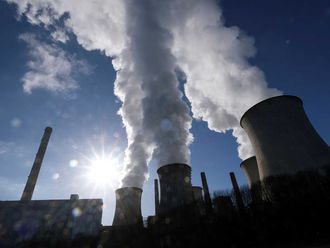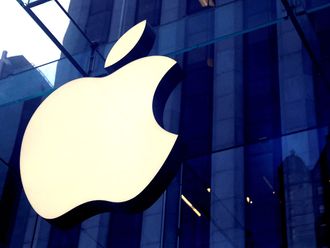
George Orwell did well out of anticipating the future, although he had the advantage of fiction rather than fact being his thing. Squealer, a character from Animal Farm, advises his comrades: "Do not imagine, comrades, that leadership is a pleasure. On the contrary, it is a deep and heavy responsibility. [The leader] would be only too happy to let you make your decisions yourselves. But sometimes you might make the wrong decisions, comrades, and then where would you be?"
To make better decisions in the future, I advised my daughter to take Economics and Chinese amongst her "A level" choices, but would she listen? Fund-manager speak is all about the inevitable west-to-east movement of economic power, with the strongest theme being the "China-isation" of the future. That's all well-covered.
Not so well-covered is the need of our "comrades" to understand economics. Economics and Double-Dutch appear to be amongst the most difficult-to-understand languages, and interpretation is being left to global leaders, where does this leave us?
Mainly it leaves us to learn economic history as it unfolds in front of us. Greece and how it manages its near-to-default position is perhaps the next unwritten chapter. The problem with economics is that much of it was re-written in 2008.
From the global perspective, it seems we remain scarred by 2008 and all that: specifically, the failure of the likes of Lehman's, RBS and Northern Rock. Over-reaction to these failures is leading to an outcry's against bankers and their bonuses and confusion between successful trading strategies within banks and the legacy of unsuccessful lending strategies. Our research colleagues at Viewpoint (RMB research), say: "Lehman's did not go belly up because of their trading activities they bit the dust through over-leveraging their balance sheet by lending to poor creditors". Focus on bringing balance sheets under control, says Viewpoint.
Impact
It is easy to think (whilst looking at a sandstorm blowing through my garden in Dubai) that those financial storms in the US and UK have nothing to do with Gulf News readers. My sand won't get to them; their fallout won't get to us. But then "Dubai contagion" grew from absolutely nowhere, and what is now being seen as a "transparency failure" did work to reveal that certain aspects of global economic leadership do criss-cross with local leadership. The single biggest one being "default fear".
So, whilst difficult to understand, there were three big economic lessons of 2008-and-all-that: Rule One: don't borrow more than what you can repay. Don't over-leverage. Rule Two: if you ignore Rule One, you can't be too big to fail. Rule Three: if you are big, and ignore Rule One, then everyone else might panic.
Within all of this, Greece is a litmus test of a mini-crisis. So what will Europe and the world do about Greece? Back to Orwell's Animal Farm: "All animals are equal, but some animals are more equal than others". To this, Viewpoint points out a significant discrepancy between the debts of Europe's first-tier nations and their perceived ability to repay sovereign debt, and those of the PIGS (Portugal, Ireland, Greece and Spain). The perception of their ability to repay being generally measured by "credit default swap contracts". Or, the cost of insuring against the default of a sovereign debt issue.
One bit of good news is that governments find it easier to re-schedule debts than you and me. A second bit of good news is that the PIGS all have plans to work towards managing Rule One, and to live within their income. The CDS rates however show Greece as closet to default, and, as you can see on your TV screens, our comrades in Greece are not universally happy about what government tax and austerity measures mean to them in terms of how Greek leadership plan to avoid default.
Outlook
What happens next might be another chapter in the "understanding today's economics", because anything can happen. One extreme would be that the Europeans agree to give capital to Greece to help the Greeks to maintain a cohesive euro zone financial strategy.
However, will not the other PIGS seek the same helping hand? Alternatively, the chapter might unfold into the Greeks deciding that maintaining allegiance to euro financial politics and strategy is not worth the hassle and it might decide to devalue its currency, leave the euro and manage its own affairs. If that happens, will Greece be seen as having not been too big to fail, and what will the collateral panic button throw up? Questions for our global economic leaders to answer.
The writer is chairman of Mondial Financial Partners.











